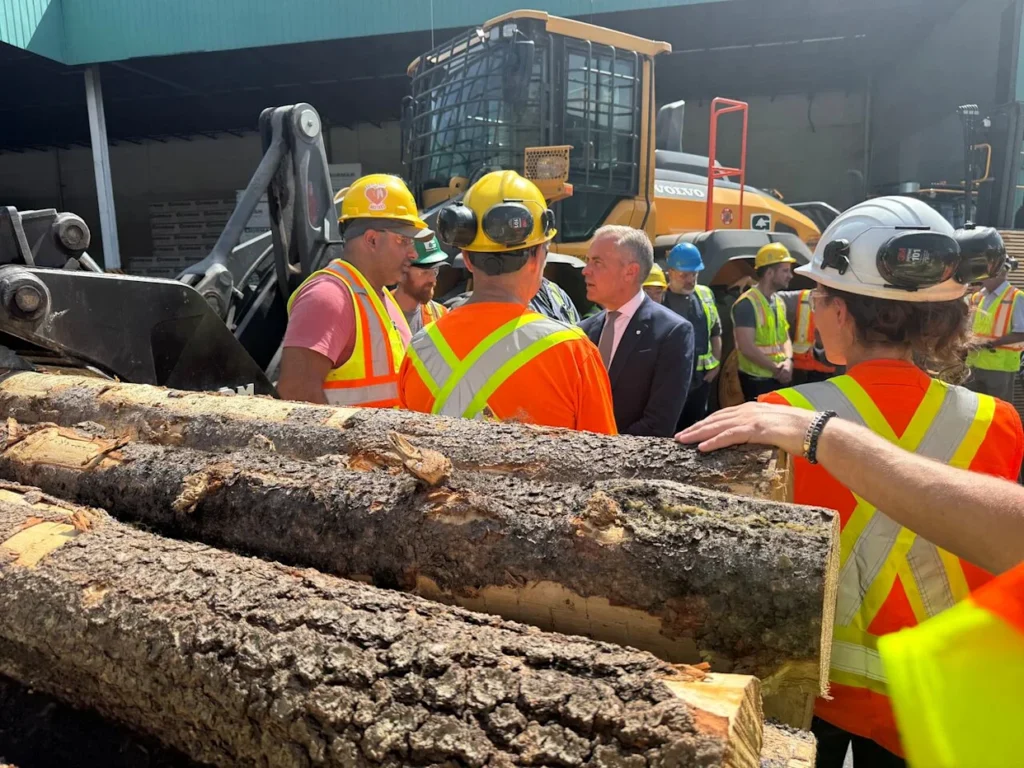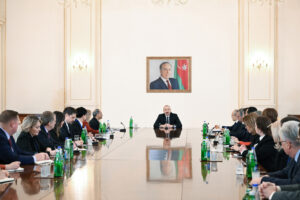U.S. Raises Duties on Canadian Softwood Lumber to 35.19%

Washington, The Gulf Observer: The United States has raised countervailing duties on Canadian softwood lumber to a total of 35.19 per cent, a move that has drawn sharp criticism from political leaders and industry representatives in Canada.
The U.S. Department of Commerce announced the decision on Friday, marking the latest escalation in a decades-long trade dispute between the two countries over lumber pricing. While the increase was widely anticipated, it was nonetheless met with strong condemnation from officials in British Columbia and Ontario, who called the move unfair and damaging to both economies.
B.C. Forests Minister Ravi Parmar described the increase as “absurd and reckless,” warning that additional duties would “worsen an affordability crisis on both sides of the border.” He characterised the tariffs as “an attack on hard-working forestry workers in Canada,” noting that the costs would ultimately be borne by U.S. consumers seeking to build homes. “It is nothing more than poking themselves in the eye; this is going to cost them big, as they rely heavily on our lumber,” Parmar said.
Industry leaders echoed these concerns. The B.C. Council of Forest Industries labelled the fees “crippling” to Canadian workers, while the B.C. Lumber Trade Council stressed that the tariffs would raise costs for U.S. construction companies reliant on Canadian softwood to meet housing demand. “This decision will harm communities on both sides of the border,” said council president Kurt Niquidet, calling for “a stable, negotiated agreement that supports jobs, trade, and housing affordability.”
The Ontario Forest Industries Association also criticised the move, citing a Canadian Chamber of Commerce report estimating that existing tariffs have already added approximately US$6,000 to the cost of building a single-family home in the United States.
The softwood lumber dispute dates back decades and centres on differences in timber pricing systems. In Canada, lumber-producing provinces set stumpage fees for timber harvested from Crown land, a practice U.S. producers argue constitutes an unfair subsidy. The U.S. Department of Commerce has consistently upheld this view, imposing duties on Canadian imports on the grounds they are sold at less than fair market value.
Parmar noted that Canada has repeatedly challenged U.S. duties under the Canada-United States-Mexico Agreement (CUSMA), the former North American Free Trade Agreement, and through the U.S. Court of International Trade — and has won each time. However, he expressed concern about the current U.S. administration’s willingness to follow legal rulings.
The Canadian forestry sector, particularly in B.C., has been hit hard by rising duties in recent years, with mill closures and job losses attributed in part to reduced U.S. market access. Earlier this week, Prime Minister Mark Carney announced more than $1.2 billion in federal support for the industry, aimed at diversifying export markets and retraining displaced workers. Parmar said he expects nearly half of that funding to go to B.C., the country’s largest forestry producer.
While the support package offers “a bit of comfort,” Parmar stressed that Canada must work to reduce its dependence on the U.S. lumber market.


